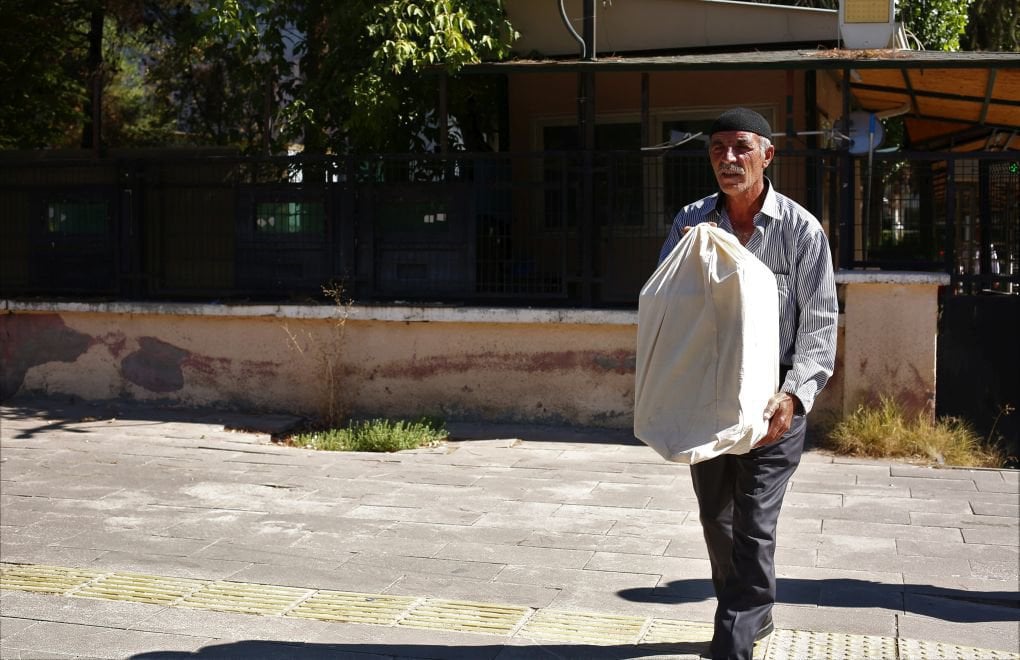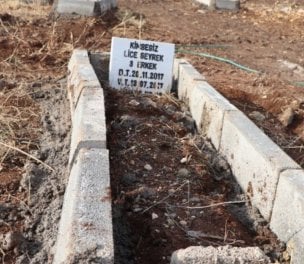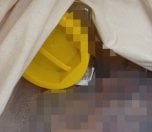Photo: MA
Click to read the article in Turkish (1) (2) / Kurdish
Bones of Hakan Arslan, who was killed during the 2015 conflict in the Kurdish-majority province of Diyarbakır in southeastern Türkiye, was delivered to his father in a bag.
The Forensic Medicine Institute (ATK) determined in November that the bones belonged to Arslan with a probability of 95 percent, and sent them to the Diyarbakır Courthouse on August 25.
Hakan Arslan's father, Ali Rıza Arslan, traveled to Diyarbakır from Erzurum after he was notified that bones had been delivered to the courthouse.
☞ Hundreds of militants, security officers and civilians were killed in the urban conflict in several Kurdish provinces in Türkiye's southeast between mid-2015 and early 2016.
.jpg) Work by the Italian graphic artist Gianluca Costantini in İstanbul.
Work by the Italian graphic artist Gianluca Costantini in İstanbul.
Complaint against prosecutor
The Diyarbakır Bar Association filed a petition of complaint with the Council of Judges and Prosecutors (HSK), the country's judicial overseeing body, against the prosecutor who handled the delivery of the bones.
It demanded an investigation be launched against the prosecutor for "abuse of office" and "disrespect towards the memory of a person" because of the way the bones were delivered to Arslan.
The prosecutor's behavior violated article 8 of the European Convention on Human Rights (ECHR), which provides a right to respect for one's "private and family life," the bar argued.
"Everyone has the right to be buried in an honorable way in accordance with their family traditions, to bury their relatives or people very close to them ... to mourn and commemorate the deceased," the bar said in the petition.
"For this reason, the state, the security forces and local courts, should consider the right to be buried in a dignified manner and people's right to bury their relatives."
The delivery of his son's remains to Ali Rıza Arslan in a box was not "legally and conscientiously right," it said.
"This treatment of the body constitutes the crime of torture and ill-treatment," the bar further argued.
It demanded the prosecutor be put on trial for "insulting the memory of a person" as per article 130/2 of the Turkish Penal Code. (EMK/AS/VK)






